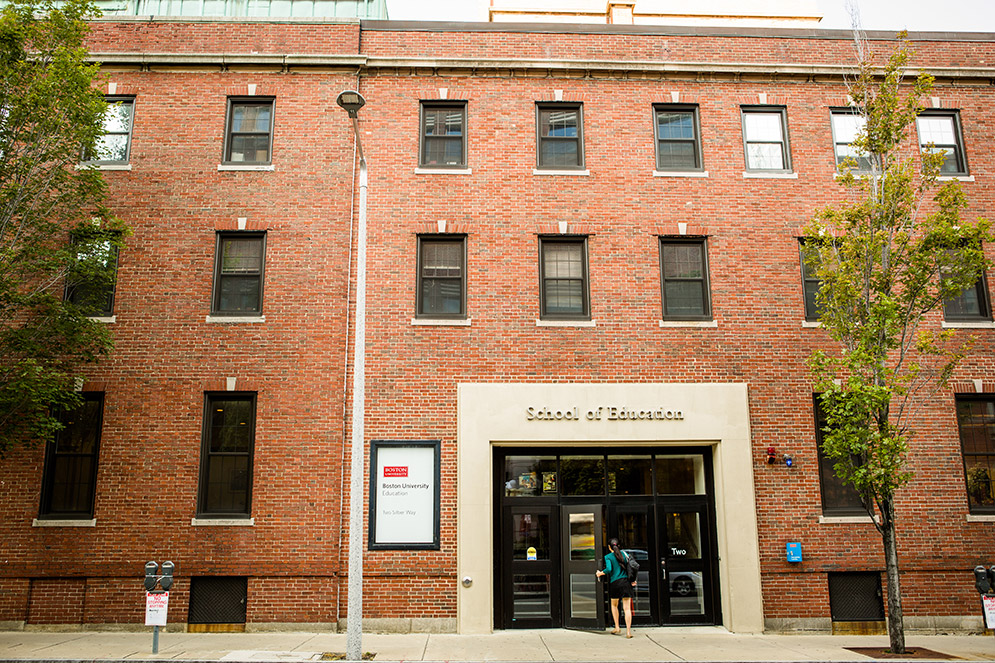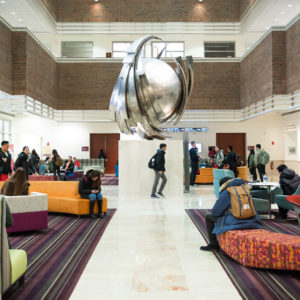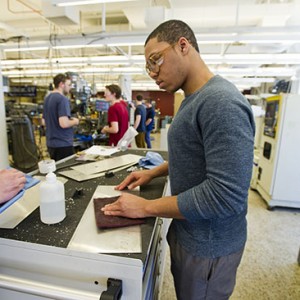With the release of 2018 U.S. News & World Report rankings of the best graduate schools nationwide this week, Boston University has seen some significant improvements in some fields and continues to fare well in others.
Among BU’s professional schools, the School of Education has moved up 9 notches, to 36th in the country. SED was among 256 schools of education ranked by the magazine.
SED Dean Hardin Coleman recalls that nine years ago, his school was a less exalted 62nd on the U.S. News scale. “The major driver of our improvement,” says Coleman, “has been the recruitment of research-active faculty and the support we give them to be productive. We are winning grants from national groups that include the National Institutes of Health, the federal Institute of Education Sciences, the Spencer Foundation, and the Templeton Foundation.
“We have faculty who are taking leadership roles on editorial boards and professional organizations,” he adds. “At the same time, we have built on our strengths as a school that prepares highly effective educators that are sought after by regional school districts.”
“We are very proud of the accomplishments of the School of Education” says Jean Morrison, University provost. “This jump in the rankings is a credit to the SED faculty and Dean Hardin Coleman.”
Other BU schools that fared well with U.S. News are the Questrom School of Business, for its full-time MBA program (44 out of 131 peers), the College of Engineering (34 out of 198), and the School of Law (23 of 197). While ENG’s ranking is up one spot from last year’s (34 versus 35), Questrom and LAW both dropped 3 spots.
“There is intense competition among these schools and small differences separate schools in the rankings, so the fact that our professional school rankings are bouncing around some is not unexpected,” says Morrison. “We are always looking to move up in the rankings, but so are all of our competitors, so in any given year there is some jostling.”
The magazine rated medical schools in several categories; BU’s School of Medicine was the 30th best for research and 34th for primary care education out of 118 schools nationally. The primary care program jumped up six spots from last year, a significant improvement.
U.S. News also gave a shout-out to several graduate programs in the College of Arts & Sciences: in economics (23rd best in the country), English (42nd), and psychology (39th) and philosophy (37th).
The magazine’s methodology for evaluating schools relies on two broad measures. One is peer assessments from deans, senior faculty, program directors, and professionals in the discipline who have hired recent graduates of the schools. The second is statistical data on the quality of a school’s faculty, research, and students.
BU’s profile also is flying high globally according to another recent evaluation, the QS World University Rankings by Subject. QS called BU “among the world’s elite institutions” in 36 academic subjects
QS, headquartered in London, collects and disseminates global higher education information. Its “Rankings by Subject” assess both undergraduate and graduate quality, using measures—academic reputation, reputation with employers, and citations of faculty papers—that don’t distinguish between the two levels, but rather gauge the University’s quality collectively.
Of the 1,117 institutions ranked worldwide this year, BU placed 63rd for arts and humanities, 166th for engineering and technology, 41st for life sciences and medicine, 94th in natural sciences, and 96th in social sciences and management (QS combines those fields).
“While we recognize that none of these rankings offers a perfect assessment of the quality and stature of our schools and programs, we are performing well and continue to be confident that the excellent work of our faculty is being recognized,” Morrison says.

















































No mention of our excellent School of Public Health, sitting pretty in the top 10 nationally?
Love BU. Graduated from School of Mgmt. (now Questrom) in 1955. Became a professor at SMG for 26 years till I retired on Sept. 1, 2012 at age 79. Still have some friends there. Say “hi.”
Upset over BU hockey loss in overtime. I captained the team in 1954-5
This photo unfortunately isn’t the best representation of BU for an announcement of this sort. (Class of 1982)
As a graduate of BU in life science and medicine, physical therapy, I congratulate BU on your accompaniment.